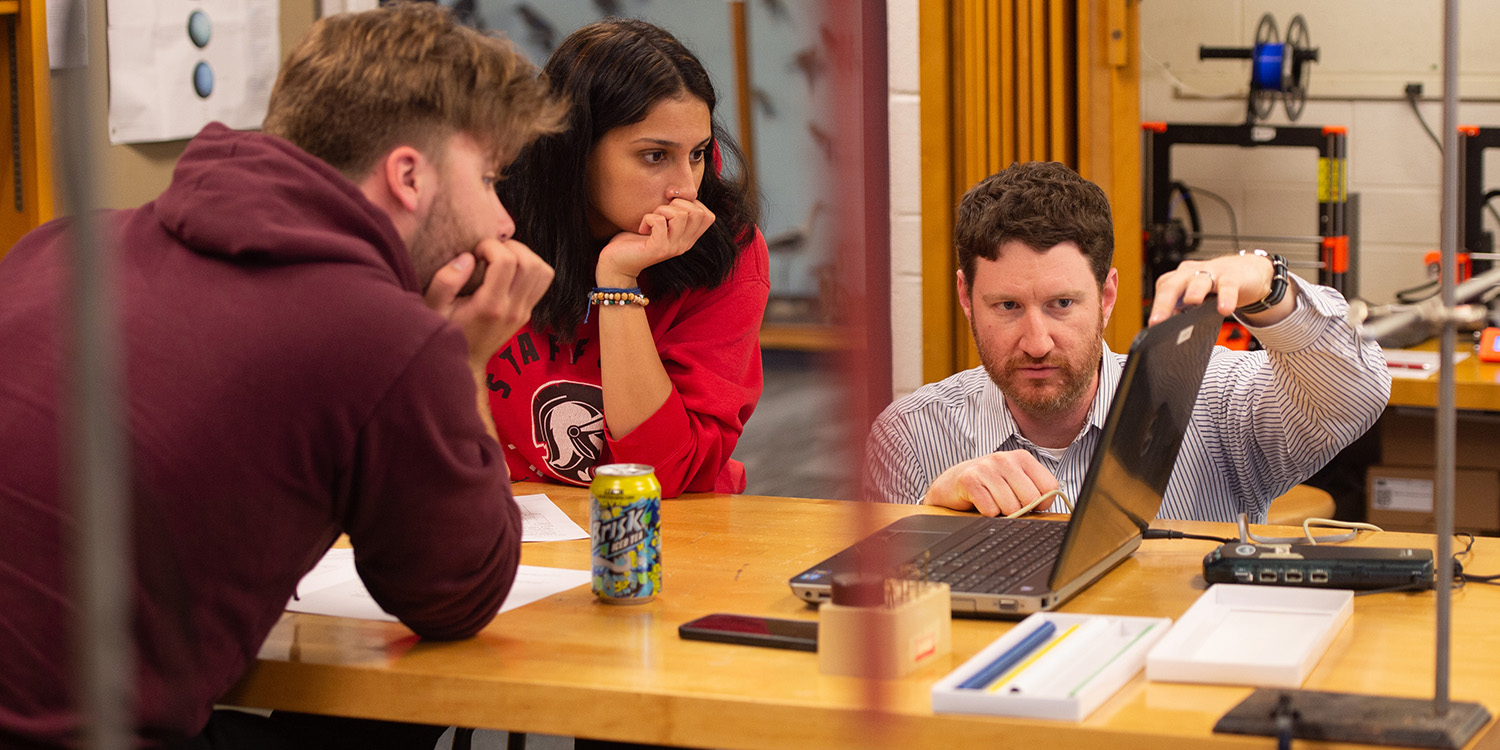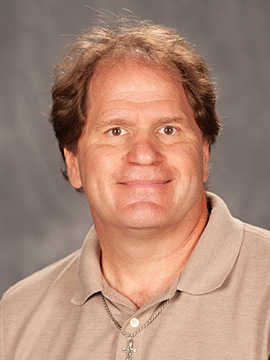Program of study, click to expand
Physics
What is physics?
Physics is the study of the motion of matter through space and time, with concepts including mechanics, optics, electricity and magnetism, and thermodynamics.
Success factors
Physics students possess an analytical mind, attention to detail and strong mathematical skills. They seek to understand what equations through theory and experiment.
Career possibilities
- Theoretical research physicist
- Experimental research physicist
- College or university faculty
- Secondary education teacher
- Government laboratory scientist
- University research associate
“I feel that the biggest strength of Hesston College’s math and science department is that the instructors get to know you and they encourage your interests. They are willing to work with you rather than just lecturing and giving assignments. That kind of personal attention is hard to come by.”
— Chellie Ramer, class of 2002
— Chellie Ramer, class of 2002
Majoring in physics
- Hesston College has well-equipped science laboratories including wireless, computerized data gathering equipment in the physics lab. Computer programs, including Mathematica, allow students to graph and analyze data electronically and see the data online.
- Physics II students also do a hands-on research project.
Sample curriculum – associate degree in physics
As a physics student, you will enroll in a physics plan of study which includes a number of science and math classes that provide the basis to transfer with a major in physics. Academic advisors work one on one with students to ensure requirements are met for a seamless transition to continuing education and professional careers.
Courses
- Phys103 Concepts of Physics: Motion, Heat and Sound 4 hours
- Phys104 Concepts of Physics: Electricity, Magnetism and Light 4 hours
- Phys203 College Physics I 4 hours
- Phys204 College Physics II 4 hours
- Phys213 Physics for Scientists and Engineers I 5 hours
- Phys214 Physics for Scientists and Engineers II 5 hours



